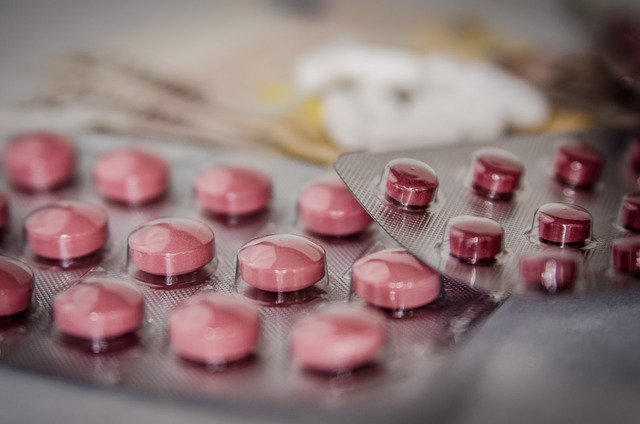How Medications Impact Kidney Health and Prevention Strategies
Kidney disease affects millions worldwide, with medication-induced damage being a significant but preventable cause. Many common medications can harm kidney function over time, making it crucial to understand how drugs interact with these vital organs. From prescription painkillers to over-the-counter remedies, various medications pose risks to kidney health. However, with proper knowledge and preventive measures, you can protect your kidneys while managing other health conditions effectively.

Kidney disease represents one of the most serious health challenges facing modern medicine, affecting over 850 million people globally. While genetic factors and underlying conditions contribute to kidney problems, medication-induced kidney damage has emerged as a significant and often preventable cause of kidney dysfunction. The kidneys filter approximately 50 gallons of blood daily, making them particularly vulnerable to the effects of various medications that pass through their delicate filtering system.
Understanding How Medications Affect Kidney Function
Medications can impact kidney function through several mechanisms, with some drugs directly damaging kidney cells while others reduce blood flow to these vital organs. Nonsteroidal anti-inflammatory drugs (NSAIDs) like ibuprofen and naproxen are among the most common culprits, as they can reduce blood flow to the kidneys and cause inflammation. Certain antibiotics, including aminoglycosides and some cephalosporins, can directly damage kidney cells through toxic effects. Additionally, contrast dyes used in medical imaging procedures can cause acute kidney injury, particularly in patients with existing kidney problems or diabetes.
The kidneys’ role in drug elimination makes them especially susceptible to medication-related damage. When kidney function declines, medications can accumulate in the body, leading to increased toxicity and further kidney damage. This creates a dangerous cycle where medication-induced kidney problems worsen over time if not properly managed.
Steps To Prevent Medication Induced Kidney Damage
Preventing medication-induced kidney damage requires a proactive approach involving both healthcare providers and patients. The first crucial step involves maintaining an accurate medication list and sharing it with all healthcare providers, including over-the-counter drugs, supplements, and herbal remedies. Many people don’t realize that seemingly harmless supplements can interact with prescription medications or directly affect kidney function.
Regular kidney function monitoring through blood tests becomes essential for individuals taking potentially nephrotoxic medications. Healthcare providers typically monitor creatinine levels and estimated glomerular filtration rate (eGFR) to assess kidney function. Patients should also stay well-hydrated, as dehydration can increase the risk of medication-induced kidney damage. When possible, healthcare providers may recommend alternative medications with lower kidney toxicity risks or adjust dosages based on kidney function.
Timing of medication administration can also play a role in prevention. Some medications should be taken with plenty of water, while others may need to be temporarily discontinued before medical procedures involving contrast dyes. Patients with existing kidney disease require especially careful medication management, with doses often adjusted based on kidney function levels.
Lifestyle And Dietary Changes For Kidney Protection
Lifestyle modifications form the foundation of kidney protection and can significantly reduce the risk of medication-induced damage. Maintaining a healthy blood pressure is crucial, as hypertension is both a cause and consequence of kidney disease. Regular exercise, stress management, and adequate sleep all contribute to better blood pressure control and overall kidney health.
Dietary changes play a vital role in kidney protection. Reducing sodium intake helps control blood pressure and reduces kidney workload. Limiting protein intake may be beneficial for those with existing kidney disease, though this should be done under medical supervision. Staying adequately hydrated supports kidney function, but individuals with advanced kidney disease may need fluid restrictions.
Avoiding or limiting alcohol consumption and quitting smoking are essential steps, as both can worsen kidney function and increase the risk of medication-induced damage. Managing diabetes effectively through diet, exercise, and appropriate medications helps prevent diabetic kidney disease, which makes individuals more susceptible to medication-related kidney problems.
| Treatment Type | Provider | Cost Estimation |
|---|---|---|
| Chronic Kidney Disease Management | Nephrology Clinics | $200-500 per visit |
| Dialysis Treatment | Dialysis Centers | $3,000-5,000 per month |
| Kidney Transplant Evaluation | Transplant Centers | $10,000-25,000 |
| Medication Monitoring | Primary Care Physicians | $150-300 per visit |
Prices, rates, or cost estimates mentioned in this article are based on the latest available information but may change over time. Independent research is advised before making financial decisions.
Early detection and intervention remain critical factors in preventing progression of kidney disease. Regular health screenings can identify kidney problems before symptoms develop, allowing for timely adjustments to medications and treatment plans. Individuals at higher risk, including those with diabetes, hypertension, or family history of kidney disease, should be particularly vigilant about medication effects on kidney function.
The relationship between medications and kidney health requires ongoing attention and collaboration between patients and healthcare providers. By understanding how medications affect kidney function, implementing preventive strategies, and making appropriate lifestyle changes, individuals can significantly reduce their risk of medication-induced kidney damage while maintaining effective treatment for other health conditions. This comprehensive approach to kidney protection ensures better long-term health outcomes and quality of life.
This article is for informational purposes only and should not be considered medical advice. Please consult a qualified healthcare professional for personalized guidance and treatment.




